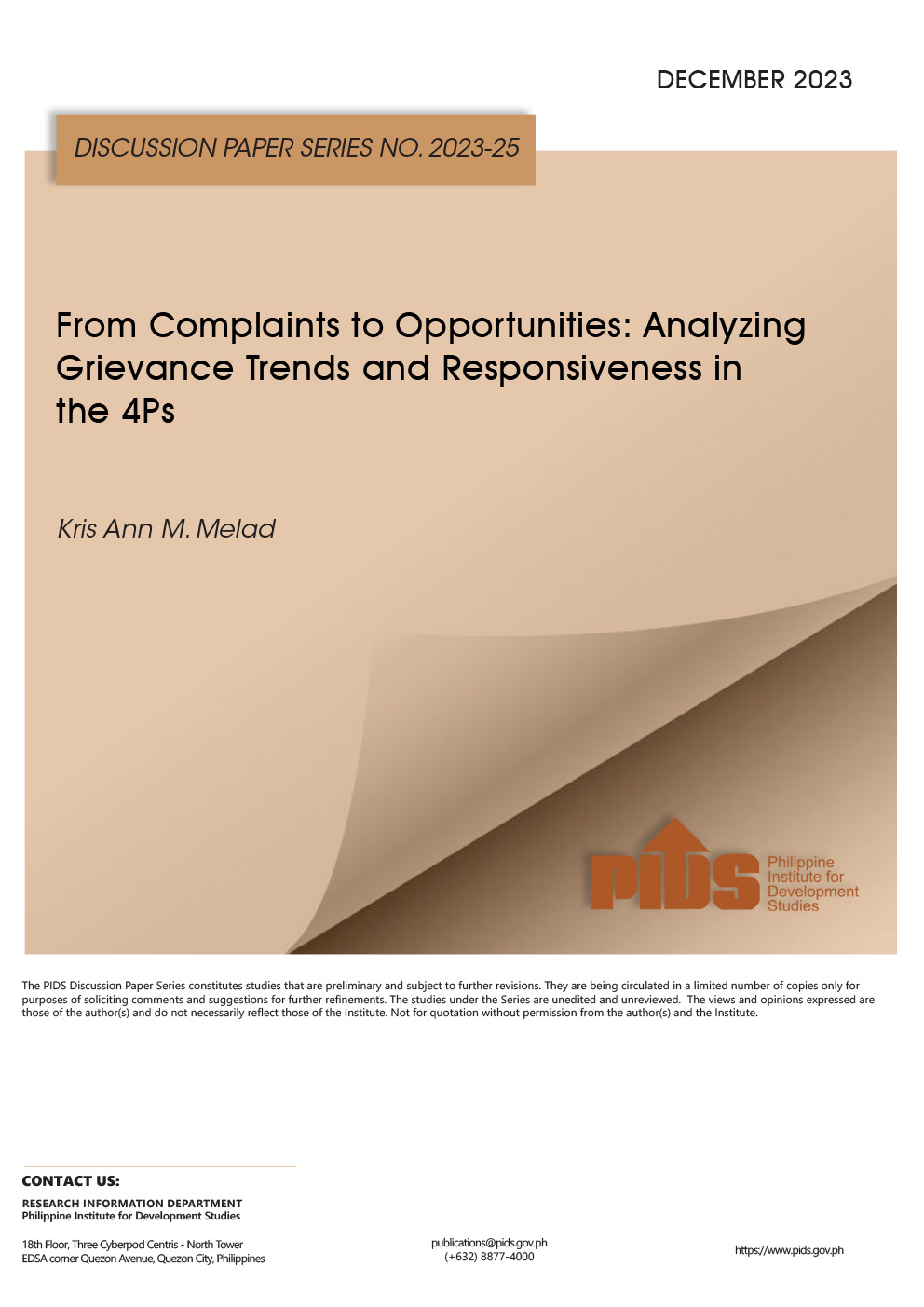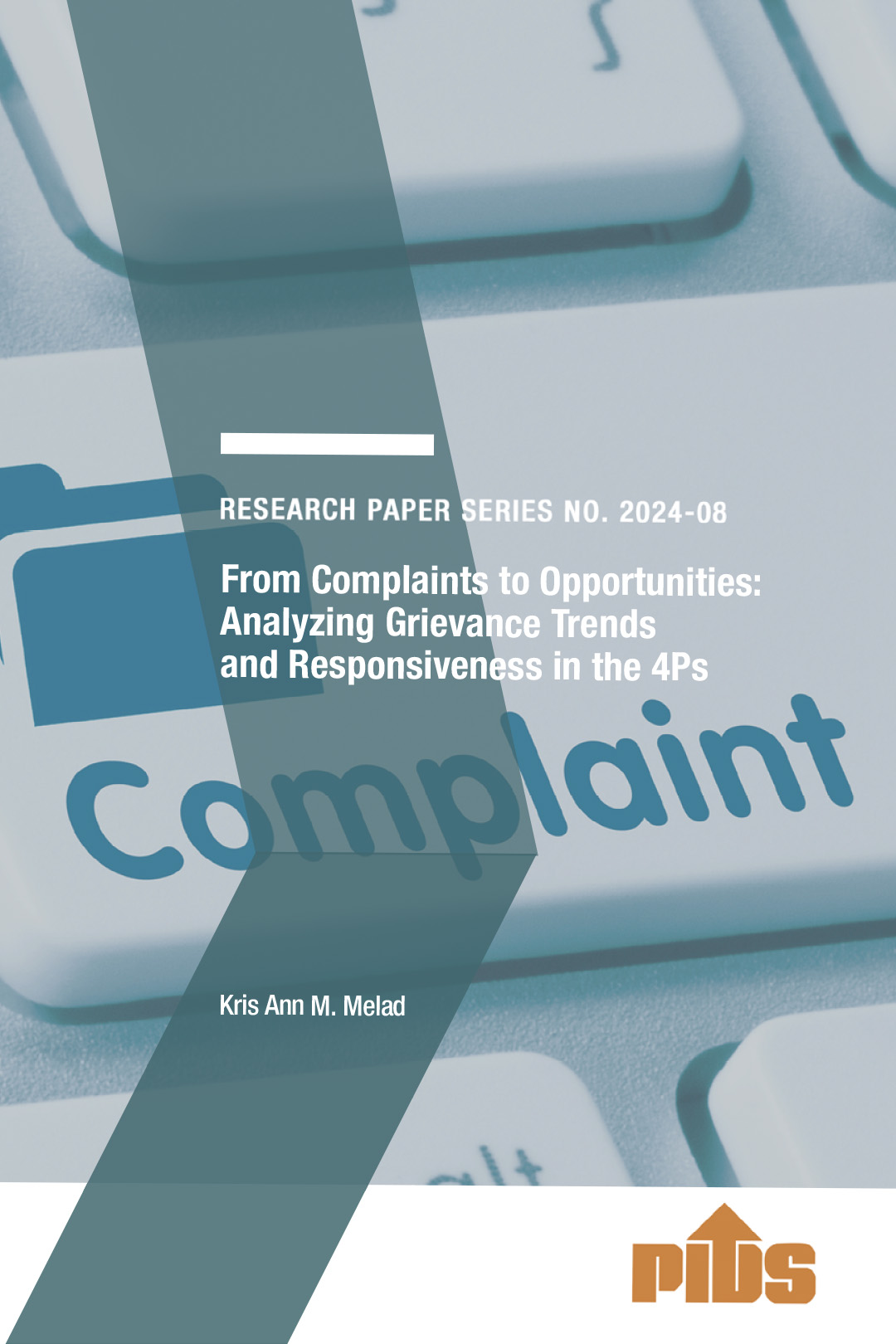Despite the strong interest among micro-small and medium entrepreneurs in the Philippines to expand and employ more people, this opportunity is missed by the country due to outdated and inflexible labor laws, a study revealed.
"Missed opportunities in creating better and more jobs are then observed when labor regulations are that inflexible," a study conducted by government think tank, The Philippine Institute for Development Studies (PIDS) reported.
Because of this set up, companies in the country, especially the MSMEs have been constrained to circumvent regulations, instead "only the larger firms are able to manage these."
Authors of the newly released study, entitled "Unintended Consequences: The Folly of Uncritical Thinking," what most companies are doing right now, is to continue to avoid the huge costs involved in hiring workers by investing more in capital.
Other common option is to avoid labor market regulations by hiring or subcontracting part-time workers.
In effect, firms are able to reduce their total labor costs as they would no longer pay for the additional benefits that are offered to the permanent workers.
These options, however, are more easily implemented by the larger firms as these require additional investments. Increasing capital and subcontracting other agencies to hire temporary workers will entail resources that are unavailable to MSMEs.
"It is ironic that the Labor Code, instead of providing good quality and secure jobs, forces firms to circumvent the laws either by investing more in capital or hiring part-time workers under subcontractors," said the paper.
The study thus proposes that apart from giving smaller firms financial incentives, labor markets regulations should be relaxed as well, while leaving the current set of regulations on the larger firms.
Furthermore, product market deregulation or [removal of] policies that protect the large firms should also be pursued."
The study also mentioned that minimum wages, in conjunction with other laws, prevent firms from recouping their investments in training the young and inexperienced.
Thereby, resulting in firms not investing enough in on-the-job training for the youth who end up with inadequate skills formation and who are ultimately unemployable-contributing to high unemployment rate.
The study authors emphasized that today's Labor Code fails to accommodate the proliferation of a significant number of MSMEs, and the interactions of these regulations with the minimum wages can weaken these smaller firms-at worst, cause them to close. (FREEMAN)
"Missed opportunities in creating better and more jobs are then observed when labor regulations are that inflexible," a study conducted by government think tank, The Philippine Institute for Development Studies (PIDS) reported.
Because of this set up, companies in the country, especially the MSMEs have been constrained to circumvent regulations, instead "only the larger firms are able to manage these."
Authors of the newly released study, entitled "Unintended Consequences: The Folly of Uncritical Thinking," what most companies are doing right now, is to continue to avoid the huge costs involved in hiring workers by investing more in capital.
Other common option is to avoid labor market regulations by hiring or subcontracting part-time workers.
In effect, firms are able to reduce their total labor costs as they would no longer pay for the additional benefits that are offered to the permanent workers.
These options, however, are more easily implemented by the larger firms as these require additional investments. Increasing capital and subcontracting other agencies to hire temporary workers will entail resources that are unavailable to MSMEs.
"It is ironic that the Labor Code, instead of providing good quality and secure jobs, forces firms to circumvent the laws either by investing more in capital or hiring part-time workers under subcontractors," said the paper.
The study thus proposes that apart from giving smaller firms financial incentives, labor markets regulations should be relaxed as well, while leaving the current set of regulations on the larger firms.
Furthermore, product market deregulation or [removal of] policies that protect the large firms should also be pursued."
The study also mentioned that minimum wages, in conjunction with other laws, prevent firms from recouping their investments in training the young and inexperienced.
Thereby, resulting in firms not investing enough in on-the-job training for the youth who end up with inadequate skills formation and who are ultimately unemployable-contributing to high unemployment rate.
The study authors emphasized that today's Labor Code fails to accommodate the proliferation of a significant number of MSMEs, and the interactions of these regulations with the minimum wages can weaken these smaller firms-at worst, cause them to close. (FREEMAN)












